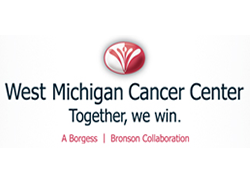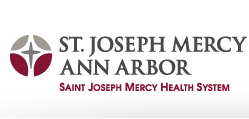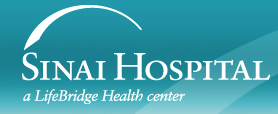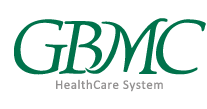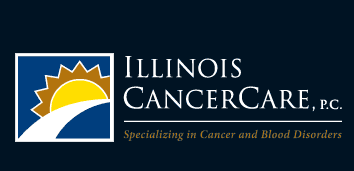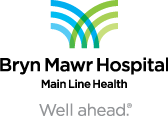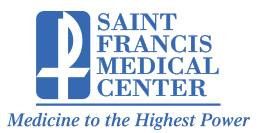Tamoxifen Citrate or Letrozole With or Without Bevacizumab in Treating Women With Stage IIIB or Stage IV Breast Cancer
| Status: | Active, not recruiting |
|---|---|
| Conditions: | Breast Cancer, Cancer, Postmenopausal Syndrome, Women's Studies |
| Therapuetic Areas: | Endocrinology, Oncology, Reproductive |
| Healthy: | No |
| Age Range: | 18 - Any |
| Updated: | 3/29/2019 |
| Start Date: | May 15, 2008 |
Endocrine Therapy With or Without Anti-VEGF Therapy: A Randomized, Phase III Trial of Endocrine Therapy Alone or Endocrine Therapy Plus Bevacizumab (NSC 704865) for Women With Hormone Receptor-Positive Advanced Breast Cancer
This randomized phase III trial studies tamoxifen citrate or letrozole together with
bevacizumab to see how well it works compared with tamoxifen citrate or letrozole alone in
treating women with stage IIIB or stage IV breast cancer. Estrogen can cause the growth of
breast cancer cells. Hormone therapy using tamoxifen citrate or letrozole may fight breast
cancer by blocking the use of estrogen by the tumor cells. Immunotherapy with monoclonal
antibodies, such as bevacizumab, may induce changes in the body's immune system and may
interfere with the ability of tumor cells to grow and spread. It is not yet known whether
giving hormone therapy is more effective with or without bevacizumab in treating advanced
breast cancer.
bevacizumab to see how well it works compared with tamoxifen citrate or letrozole alone in
treating women with stage IIIB or stage IV breast cancer. Estrogen can cause the growth of
breast cancer cells. Hormone therapy using tamoxifen citrate or letrozole may fight breast
cancer by blocking the use of estrogen by the tumor cells. Immunotherapy with monoclonal
antibodies, such as bevacizumab, may induce changes in the body's immune system and may
interfere with the ability of tumor cells to grow and spread. It is not yet known whether
giving hormone therapy is more effective with or without bevacizumab in treating advanced
breast cancer.
PRIMARY OBJECTIVES:
I. To compare the progression-free survival of letrozole therapy alone with the combination
of letrozole therapy plus bevacizumab as first-line treatment in women with estrogen- and/or
progesterone-receptor-positive advanced breast cancer.
SECONDARY OBJECTIVES:
I. To compare the proportion of patients receiving letrozole alone, who remain
progression-free at 6 and 12 months, to those receiving letrozole plus bevacizumab.
II. To compare the incidence of objective response (complete response [CR] + partial response
[PR]) in patients receiving letrozole with and without bevacizumab, as determined by Response
Evaluation Criteria in Solid Tumors (RECIST) criteria, excluding patients with non-measurable
disease.
III. To compare the incidence of clinical benefit (CR + PR + stable disease >= 6 months) in
patients receiving letrozole with and without bevacizumab.
IV. To compare the duration of objective response in patients receiving letrozole with and
without bevacizumab.
V. To compare the time to treatment failure in patients receiving letrozole with and without
bevacizumab.
VI. To compare the overall survival of patients receiving letrozole with and without
bevacizumab, including the probability of survival until 36 months.
VII. To compare toxicity levels between the bevacizumab arm and the arm without bevacizumab
in both the letrozole-treated patients and in the tamoxifen-treated patients.
VIII. To compare progression-free survival and overall survival of all patients receiving
endocrine therapy with and without bevacizumab (by combining both letrozole and tamoxifen*
patient subgroups).
CORRELATIVE OBJECTIVES:
I. To compare baseline and changes in serial levels of circulating endothelial cells and
circulating tumor cells in patients treated with endocrine therapy alone or endocrine therapy
plus bevacizumab, and to explore the relationship of these markers with progression free
survival.
II. To conduct proteomic analysis of longitudinal samples from patients with advanced-stage
disease undergoing hormonal therapy to define new serum-based biomarkers related to disease
activity.
III. To identify biologic correlates that will predict progression-free survival (PFS) and
response to therapy.
IV. To conduct pharmacogenomic assessment of candidate variants in the VEGF, CYP2D6, and
CYP19 genes and evaluate their association with PFS and other study outcomes.
V. To identify single nucleotide polymorphisms (SNPs) associated with progression free
survival in the genome-wide approach (GWAS).
VI. To identify factors other than chronological age that predict the risk of grade 3, 4 or 5
toxicity with bevacizumab and endocrine therapy by means of functional age assessment
measures.
VII. To perform an exploratory analysis of the ability of the other factors included in the
functional age assessment (either individual or in combination), to predict the risk of grade
3, 4 or 5 toxicity.
VIII. To evaluate longitudinal changes in the parameters of the factors described in
objective VI while on therapy.
OUTLINE: Patients are randomized to 1 of 2 treatment arms.
NOTE: The placebo-controlled portion of the study was canceled on 5-15-10.
ARM I: Patients receive endocrine therapy* (tamoxifen citrate or letrozole) orally (PO) once
daily (QD) on days 1-21 and bevacizumab intravenously (IV) over 30-90 minutes on day 1.
Treatment repeats every 21 days in the absence of disease progression or unacceptable
toxicity.
ARM II: Patients receive endocrine therapy* (tamoxifen citrate or letrozole) PO QD on days
1-21. Treatment repeats every 21 days in the absence of disease progression or unacceptable
toxicity.
After completion of study therapy, patients are followed up every 6 months for the first 2
years and then annually for up to 3 years.
* NOTE: As of 5/15/2011, patients only receive letrozole.
I. To compare the progression-free survival of letrozole therapy alone with the combination
of letrozole therapy plus bevacizumab as first-line treatment in women with estrogen- and/or
progesterone-receptor-positive advanced breast cancer.
SECONDARY OBJECTIVES:
I. To compare the proportion of patients receiving letrozole alone, who remain
progression-free at 6 and 12 months, to those receiving letrozole plus bevacizumab.
II. To compare the incidence of objective response (complete response [CR] + partial response
[PR]) in patients receiving letrozole with and without bevacizumab, as determined by Response
Evaluation Criteria in Solid Tumors (RECIST) criteria, excluding patients with non-measurable
disease.
III. To compare the incidence of clinical benefit (CR + PR + stable disease >= 6 months) in
patients receiving letrozole with and without bevacizumab.
IV. To compare the duration of objective response in patients receiving letrozole with and
without bevacizumab.
V. To compare the time to treatment failure in patients receiving letrozole with and without
bevacizumab.
VI. To compare the overall survival of patients receiving letrozole with and without
bevacizumab, including the probability of survival until 36 months.
VII. To compare toxicity levels between the bevacizumab arm and the arm without bevacizumab
in both the letrozole-treated patients and in the tamoxifen-treated patients.
VIII. To compare progression-free survival and overall survival of all patients receiving
endocrine therapy with and without bevacizumab (by combining both letrozole and tamoxifen*
patient subgroups).
CORRELATIVE OBJECTIVES:
I. To compare baseline and changes in serial levels of circulating endothelial cells and
circulating tumor cells in patients treated with endocrine therapy alone or endocrine therapy
plus bevacizumab, and to explore the relationship of these markers with progression free
survival.
II. To conduct proteomic analysis of longitudinal samples from patients with advanced-stage
disease undergoing hormonal therapy to define new serum-based biomarkers related to disease
activity.
III. To identify biologic correlates that will predict progression-free survival (PFS) and
response to therapy.
IV. To conduct pharmacogenomic assessment of candidate variants in the VEGF, CYP2D6, and
CYP19 genes and evaluate their association with PFS and other study outcomes.
V. To identify single nucleotide polymorphisms (SNPs) associated with progression free
survival in the genome-wide approach (GWAS).
VI. To identify factors other than chronological age that predict the risk of grade 3, 4 or 5
toxicity with bevacizumab and endocrine therapy by means of functional age assessment
measures.
VII. To perform an exploratory analysis of the ability of the other factors included in the
functional age assessment (either individual or in combination), to predict the risk of grade
3, 4 or 5 toxicity.
VIII. To evaluate longitudinal changes in the parameters of the factors described in
objective VI while on therapy.
OUTLINE: Patients are randomized to 1 of 2 treatment arms.
NOTE: The placebo-controlled portion of the study was canceled on 5-15-10.
ARM I: Patients receive endocrine therapy* (tamoxifen citrate or letrozole) orally (PO) once
daily (QD) on days 1-21 and bevacizumab intravenously (IV) over 30-90 minutes on day 1.
Treatment repeats every 21 days in the absence of disease progression or unacceptable
toxicity.
ARM II: Patients receive endocrine therapy* (tamoxifen citrate or letrozole) PO QD on days
1-21. Treatment repeats every 21 days in the absence of disease progression or unacceptable
toxicity.
After completion of study therapy, patients are followed up every 6 months for the first 2
years and then annually for up to 3 years.
* NOTE: As of 5/15/2011, patients only receive letrozole.
Inclusion Criteria:
- Histologic confirmation of invasive cancer of the female breast in either the primary
or metastatic setting
- Stage IV disease or stage IIIB disease (using American Joint Committee on Cancer
[AJCC] criteria, 6th edition) not amenable to local therapy
- Patients may not have a "currently active" second malignancy other than non-melanoma
skin cancers; patients are not considered to have a "currently active" malignancy if
they have completed therapy and are considered by their physician to be at less than
30% risk of relapse
- Tumors (from either primary or metastatic sites) must express estrogen receptor (ER)
and/or progesterone receptor (PgR) in >= 1% of cells will be considered positive
- Postmenopausal women are eligible for this trial; before study registration,
menopausal status must be defined according to the criteria below:
- Age >= 55 years and one year or more of amenorrhea
- Age < 55 years and one year or more of amenorrhea, with an estradiol assay < 20
pg/ml
- For women age < 55 with prior hysterectomy but intact ovaries, with an estradiol
assay < 20 pg/ml
- Surgical menopause with bilateral oophorectomy (at least 28 days must elapse from
surgery to time of study registration)
- Ovarian suppression on a luteinizing hormone-releasing hormone (LH-RH) agonist
- Premenopausal women who do not meet the postmenopausal criteria above are also
eligible, but are required to undergo ovarian suppression; this can be initiated any
time prior to or on day 1 of protocol therapy, regardless of chosen endocrine therapy,
and will continue for the duration of protocol therapy
- Patients must have measurable or non-measurable disease by RECIST criteria, with
radiologic scans within 28 days of study registration
- Measurable disease: lesions that can be accurately measured in at least one
dimension (longest diameter to be recorded) as >= 2.0 cm with conventional
techniques or as >= 1.0 cm with spiral computed tomography (CT) scan
- Non-measurable disease: all other lesions, including small lesions (longest
diameter < 2.0 cm with conventional techniques or < 1.0 cm with spiral CT scan)
and truly non-measurable lesions
- Lesions that are considered non-measurable include the following:
- Bone lesions
- Leptomeningeal disease
- Ascites
- Pleural/pericardial effusion
- Inflammatory breast disease
- Abdominal masses that are not confirmed and followed by imaging techniques
- Cystic lesions
- Prior endocrine therapy is not required
- Prior endocrine therapy in the metastatic setting is not permitted (unless
tamoxifen or an aromatase inhibitor was initiated within 4 weeks prior to
registration to facilitate enrollment of patients who recently started first-line
endocrine therapy for metastatic breast cancer); if prior letrozole therapy was
initiated within the past 4 weeks, the patients should remain on letrozole as the
study therapy; patients who began therapy with tamoxifen, anastrozole or
exemestane must switch to letrozole to be eligible to participate in this study
- Prior endocrine therapy in the adjuvant setting is permitted; there is no time
restriction for how long the patient must be on the adjuvant endocrine therapy,
nor is there a time restriction for how long the patient needs to be off prior
adjuvant endocrine therapy before beginning protocol therapy on 40503
- Prior treatment with ovarian suppression is allowed in either the adjuvant or
metastatic setting; if medical ovarian suppression is being administered it can
be initiated any time prior to or at the start of protocol therapy, and continued
throughout the duration of the trial; surgical castration with bilateral
oophorectomy must be performed at least 28 days prior to study registration (due
to concerns of poor wound healing on bevacizumab)
- Patients may not have received any prior anti-VEGF or VEGFR tyrosine kinase inhibitor
therapy
- Prior radiotherapy must have been completed and all toxicities resolved at least two
weeks prior to registration
- Chemotherapy in the adjuvant or neoadjuvant setting is permitted; at least twelve
months prior to registration must have elapsed since the completion of adjuvant or
neoadjuvant chemotherapy and all toxicities must have resolved; taxane-related
neurotoxicity must have resolved to sensory grade < 2 and no motor neuropathy of any
grade is allowed
- Patients may have received one prior chemotherapy regimen for metastatic disease; the
final dose of prior chemotherapy must have been administered at least 3 weeks prior to
study registration
- Treatment with bisphosphonates is allowed and recommended as per American Society of
Clinical Oncology (ASCO) guidelines
- Patients must not have had a major surgical procedure, open biopsy, or significant
traumatic injury within 28 days prior to study registration, and must have fully
recovered from any such procedure
- Patients must not have anticipation of need for major surgical procedure during the
course of the study
- Patients must not have had a core biopsy or other minor surgical procedure, within 7
days prior to study registration; placement of a vascular access device is allowed
within 7 days of registration
- Patients must not have a history of abdominal fistula, or intra-abdominal abscess
within 6 months prior to study registration
- Patients with a history of gastrointestinal (GI) perforation within 12 months prior to
registration are not eligible
- Patients with a history of significant bleeding episodes (e.g., hemoptysis, upper or
lower GI bleeding) within 6 months prior to registration are not eligible
- Patients must not have clinically significant cardiovascular disease that includes the
following:
- Uncontrolled hypertension defined as systolic blood pressure > 150 and/or
diastolic blood pressure > 90 mmHg on antihypertensive medications or any prior
history of hypertensive crisis or hypertensive encephalopathy
- History of myocardial infarction or unstable angina within past 6 months
- New York Heart Association (NYHA) grade 2 or greater congestive heart failure
- Symptomatic peripheral vascular disease
- Significant vascular disease (e.g., aortic aneurysm, aortic dissection) or
arterial thrombotic events
- Full dose anticoagulation therapy is allowed for the treatment of prior conditions
such as venous thrombosis or atrial fibrillation, but not for the treatment of prior
arterial thrombotic events; patients on full dose anticoagulants must be on a stable
dose of warfarin and have an in-range international normalized ratio (INR) (usually
between 2 and 3) or be on a stable dose of low-molecular weight (LMW) heparin;
patients receiving antiplatelet agents are eligible, as are patients on daily
prophylactic aspirin or anticoagulation for atrial fibrillation
- Patients may not have a history of stroke or transient ischemic attack within 6 months
prior to study registration
- Patients with a history of seizures must be well controlled with standard medication
- Patients must not have known central nervous system (CNS) metastases or leptomeningeal
disease (screening with brain imaging is not required for asymptomatic patients)
- In aromatase inhibitor (AI)-treated patients: no known allergies to imidazole drugs,
(e.g. clotrimazole, ketoconazole, miconazole, econazole, sulconazole, tioconazole, or
terconazole) or compounds structurally similar to bevacizumab
- In tamoxifen treated patients: no known allergies to selective estrogen receptor
modulators (e.g. tamoxifen, raloxifene or toremifene) or compounds structurally
similar to bevacizumab; for patients enrolled after Update #5, endocrine therapy will
consist of letrozole only and this criterion will no longer apply
- Eastern Cooperative Oncology Group (ECOG) (Zubrod) performance status =< 1
- No serious, non-healing wound, ulcer, or bone fracture
- Life expectancy of >= 12 weeks
- All patients who are premenopausal (if not already receiving ovarian suppression
therapy/surgical oophorectomy) must have a negative beta-human chorionic gonadotropin
(beta-Hcg) prior to starting on study treatment; patients may not be pregnant or
nursing at any time during the study; ovarian suppression is required in women of
childbearing potential by the start of protocol therapy, and will continue for the
duration of protocol therapy
- Granulocytes >= 1,000/ul
- Platelet count >= 100,000/ul
- Creatinine =< 2.0 mg/dL
- Bilirubin =< 1.5 times upper limit of normal (ULN) unless due to Gilbert's syndrome
- Transaminases (alanine aminotransferase [ALT], aspartate aminotransferase [AST]) =<
2.5 times ULN
- International normalized ratio (INR) =< 1.6, unless on full dose warfarin
- Beta-Hcg negative in premenopausal women
- Urine protein =< 1+ or urine to plasma creatinine (UPC) < 1
- Patients discovered to have >= 2+ proteinuria at baseline must undergo a 24-hour
urine collection that must demonstrate < 1 g of protein/24 hr, or UPC ratio < 1
to allow participation in the study
We found this trial at
528
sites
John B. Amos Cancer Center The John B. Amos Cancer Center located in Columbus, Georgia,...
Click here to add this to my saved trials
Harold Alfond Center for Cancer Care MaineGeneral's Harold Alfond Center for Cancer Care (HACCC) is...
Click here to add this to my saved trials
Brigham and Women's Hosp Boston’s Brigham and Women’s Hospital (BWH) is an international leader in...
Click here to add this to my saved trials
Beth Israel Deaconess Medical Center Beth Israel Deaconess Medical Center (BIDMC) is one of the...
Click here to add this to my saved trials
Hurley Medical Center From its founding in 1908, Hurley Medical Center has devoted itself to...
Click here to add this to my saved trials
Holy Cross Hospital While spirituality plays an essential role in the way that we minister...
Click here to add this to my saved trials
University of Mississippi Medical Center The University of Mississippi Medical Center, located in Jackson, is...
Click here to add this to my saved trials
Click here to add this to my saved trials
Bronson Methodist Hospital Our healthcare system serves patients and families throughout southwest Michigan and northern...
Click here to add this to my saved trials
West Michigan Cancer Center In 1994, Borgess Health Alliance and Bronson Healthcare Group opened the...
Click here to add this to my saved trials
Medical Center of Central Georgia Navicent Health is a designated Level I Trauma Center and...
Click here to add this to my saved trials
4805 Northeast Glisan Street
Portland, Oregon 97213
Portland, Oregon 97213
(503) 215-1111

Providence Portland Medical Center We strive to give those we serve exceptional, compassionate health care...
Click here to add this to my saved trials
University of Rochester The University of Rochester is one of the country's top-tier research universities....
Click here to add this to my saved trials
Avera Cancer Institute Avera, the health ministry of the Benedictine and Presentation Sisters, is a...
Click here to add this to my saved trials
Click here to add this to my saved trials
Click here to add this to my saved trials
Abington Memorial Hospital Abington Memorial Hospital (AMH) is a 665-bed, regional referral center and teaching...
Click here to add this to my saved trials
Click here to add this to my saved trials
Click here to add this to my saved trials
Click here to add this to my saved trials
Click here to add this to my saved trials
Click here to add this to my saved trials
AnMedical Health Cancer Center Cancer is the general term for a group of more than...
Click here to add this to my saved trials
Saint Joseph Mercy Hospital St. Joseph Mercy Ann Arbor Hospital is a 537-bed teaching hospital...
Click here to add this to my saved trials
Click here to add this to my saved trials
Click here to add this to my saved trials
Click here to add this to my saved trials
Randolph Hospital Since 1932, Randolph Hospital has been fortunate to employ dedicated and loyal personnel...
Click here to add this to my saved trials
Click here to add this to my saved trials
Click here to add this to my saved trials
Piedmont Hospital For more than a century, Piedmont Healthcare has been a recognized leader in...
Click here to add this to my saved trials
Click here to add this to my saved trials
Northside Hospital Northside Hospital-Atlanta (in Sandy Springs) opened in 1970. The original facility had 250...
Click here to add this to my saved trials
Click here to add this to my saved trials
Click here to add this to my saved trials
Medical Center of Aurora At The Medical Center of Aurora and Centennial Medical Plaza patients...
Click here to add this to my saved trials
Rush - Copley Medical Center Rush-Copley is proud to be the leading provider of health...
Click here to add this to my saved trials
Click here to add this to my saved trials
Sinai Hospital of Baltimore Sinai Hospital of Baltimore provides a broad array of high-quality, cost-effective...
Click here to add this to my saved trials
Greater Baltimore Medical Center The 255-bed medical center (acute and sub-acute care) is located on...
Click here to add this to my saved trials
22 South Greene Street
Baltimore, Maryland 21201
Baltimore, Maryland 21201
410-328-7904

University of Maryland Greenebaum Cancer Center The University of Maryland Marlene and Stewart Greenebaum Cancer...
Click here to add this to my saved trials
Click here to add this to my saved trials
Eastern Maine Medical Center Located in Bangor, Eastern Maine Medical Center (EMMC) serves communities throughout...
Click here to add this to my saved trials
Click here to add this to my saved trials
Click here to add this to my saved trials
Click here to add this to my saved trials
Bronson Battle Creek As a proud member of the Battle Creek community, we believe everyone...
Click here to add this to my saved trials
Click here to add this to my saved trials
Click here to add this to my saved trials
Mary Rutan Hospital The hospital was endowed by the sale of a farm in Ridgeway...
Click here to add this to my saved trials
Click here to add this to my saved trials
Click here to add this to my saved trials
Click here to add this to my saved trials
Click here to add this to my saved trials
Click here to add this to my saved trials
Click here to add this to my saved trials
Click here to add this to my saved trials
Click here to add this to my saved trials
Click here to add this to my saved trials
Saint Vincent Healthcare The Sisters of Charity of Leavenworth, Kansas, founded St. Vincent Healthcare in...
Click here to add this to my saved trials
Mid Dakota Clinic, PC We're your family clinic, with the doctors you know and trust...
Click here to add this to my saved trials
Saint Alexius Medical Center St. Alexius Medical Center is a 306-bed, full-service, acute care medical...
Click here to add this to my saved trials
Sanford Bismarck Medical Center Whether your stay in our hospital is one day for same...
Click here to add this to my saved trials
Click here to add this to my saved trials
Illinois CancerCare-Bloomington Illinois CancerCare, P.C. is a comprehensive practice treating patients withcancer andblood diseases. Our...
Click here to add this to my saved trials
Click here to add this to my saved trials
Click here to add this to my saved trials
Dana-Farber Cancer Institute Since it’s founding in 1947, Dana-Farber has been committed to providing adults...
Click here to add this to my saved trials
Boulder Community Hospital Founded in 1922 as a community-owned and operated not-for-profit hospital, Boulder Community...
Click here to add this to my saved trials
Bozeman Deaconess Hospital Bozeman Deaconess Hospital is a Joint Commission certified, licensed Level III trauma...
Click here to add this to my saved trials
Click here to add this to my saved trials
Click here to add this to my saved trials
Click here to add this to my saved trials
Click here to add this to my saved trials
Bryn Mawr Hospital Bryn Mawr Hospital, a nationally recognized community teaching hospital, is conveniently located...
Click here to add this to my saved trials
Click here to add this to my saved trials
Click here to add this to my saved trials
Click here to add this to my saved trials
400 South Clark Street
Butte, Montana 59701
Butte, Montana 59701
406-723-2500

Saint James Community Hospital and Cancer Treatment Center St. James Healthcare has played an important...
Click here to add this to my saved trials
Click here to add this to my saved trials
Illinois CancerCare - Canton Illinois CancerCare is one of the largest private oncology and hematology...
Click here to add this to my saved trials
Click here to add this to my saved trials
Aultman Health Foundation The Aultman Foundation will raise and administer funds in order to support...
Click here to add this to my saved trials
Saint Francis Medical Center Saint Francis Medical Center is a 282-bed facility serving more than...
Click here to add this to my saved trials
Click here to add this to my saved trials
Southeast Cancer Center SoutheastHEALTH is a far-reaching network of providers and facilities including Southeast Hospital...
Click here to add this to my saved trials
Illinois CancerCare - Carthage Illinois CancerCare, P.C. is a comprehensive practice treating patients withcancer andblood...
Click here to add this to my saved trials
Memorial Hospital Memorial Hospital is a vital force in establishing and maintaining the well-being of...
Click here to add this to my saved trials
Rocky Mountain Oncology Rocky Mountain Oncology Center is a spacious, comfortable, state-of-the-art 19,000 square foot...
Click here to add this to my saved trials
20055 Lake Chabot Rd #130
Castro Valley, California 94546
Castro Valley, California 94546
(510) 888-0657

Valley Medical Oncology Consultants - Castro Valley Valley Medical Oncology Consultants (VMOC) has been helping...
Click here to add this to my saved trials
East Bay Radiation Oncology Center East Bay Radiation Oncology Center offers superior medical and technical...
Click here to add this to my saved trials
Click here to add this to my saved trials
Click here to add this to my saved trials
Click here to add this to my saved trials
3110 MacCorkle Avenue Southeast
Charleston, West Virginia 25304
Charleston, West Virginia 25304
Click here to add this to my saved trials
Click here to add this to my saved trials
Click here to add this to my saved trials
Click here to add this to my saved trials
1969 W Ogden Ave
Chicago, Illinois 60612
Chicago, Illinois 60612
(312) 864-6000

John H. Stroger, Jr. Hospital of Cook County The Level 1 Trauma Center is one...
Click here to add this to my saved trials
Click here to add this to my saved trials
Click here to add this to my saved trials








